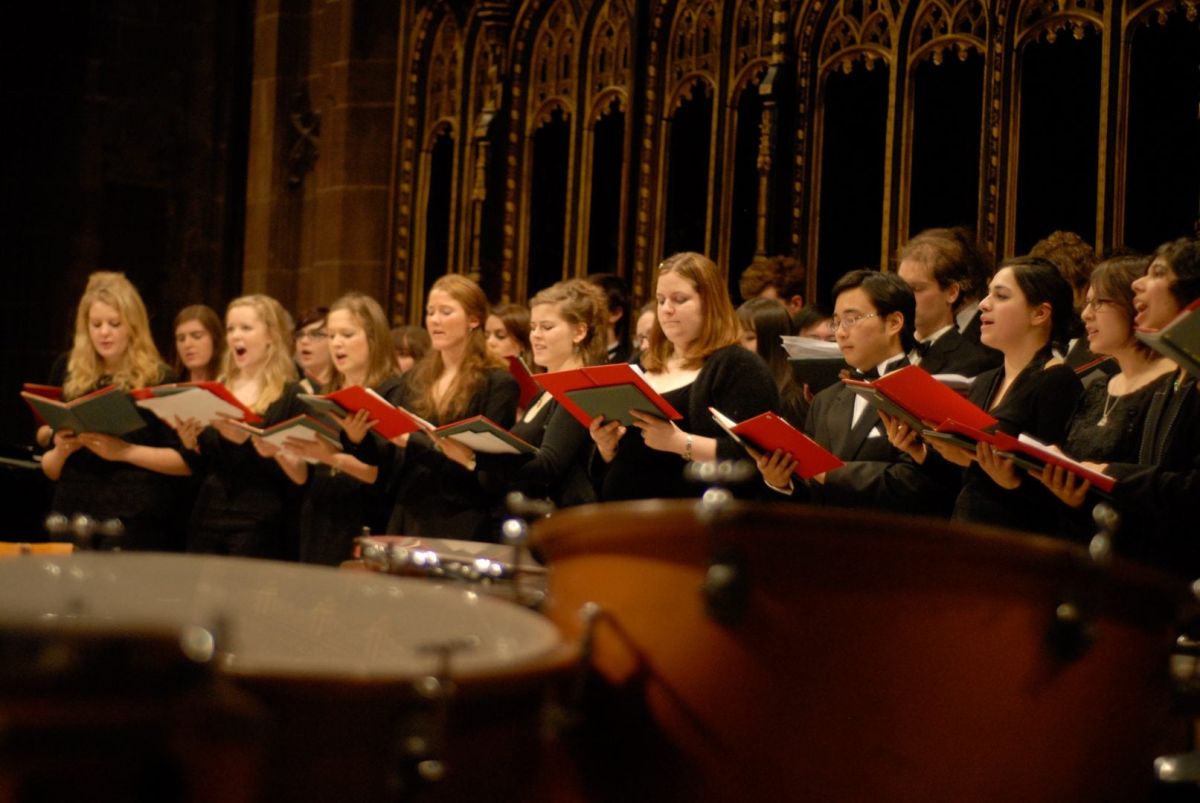Five reasons to pick up your old instrument and join a music society
By Ellie Martin

Usually, whenever we are asked “do you play a musical instrument?” on a date or during an icebreaker, the answer is “oh I used to play the such and such, but I never practised”.
Thousands of disregarded instruments are collecting dust in our old rooms at home, looking forlorn, and causing pangs of guilt every time we glance at them. Memories of reluctant hours spent sat at the keyboard or repeating scales over and over again relentlessly, usually under the watchful eye of a parent or at least the shouts of “I can’t hear you playing!” from downstairs.
There’s all this, and then there’s the searing regret of how cool it would have been have truly mastered the instrument and be able to play the piano at Oxford Road Station to impress friends or form a band with flatmates mostly for a bit of craic, but actually to show off your amazing skills a little as well.
Well, I’m here to tell you it’s not too late! Before I tell you my five reasons to unleash your instrument from its dusty shackles, I just want to recognise how hard it can be to stay motivated with an instrument.
Luckily, the Choir and Orchestra Society can help with their new repertoire as Semester Two kicks in. New members are welcome to rehearsals, so if you play an instrument that you could find in an orchestra, head on down! And if you don’t, contact their committee, you never know what score they might be able to pull from the depths of their library that could accommodate you.
The first reason why you should pick your old instrument up is that it teaches you discipline and patience which you may have never mastered as a child, and could really benefit your results. You might find that going over a passage or scale one day you might see no improvement at all, but the next day you go over the same thing again and suddenly you’re near perfect at it. Our brains are really good at problem solving in the background, so while you may see no improvement for a while, your brain is sorting it out. These skills are completely transferable to uni life. Having practised getting through the frustration of not getting something right for a while, but knowing your brain’s on the task can really help come revision time.
It will also make you a master of time management. Organising yourself to get time to practice, even 10 minutes a day, or half an hour every other day, takes a bit of planning to get done. Another reason why I personally didn’t reach my musical goals was because every week, while I’d always had the intention to practice, my lesson would come around and I’d not picked up my cello once.
It’s also good for your brain, seriously! Speaking from personal experience, I found that picking my instrument back up at uni made me feel way more receptive to my classes. While practising scales for 20 minutes or so and working on a piece for another 10 every other evening, I was so much more capable of taking on new ideas in my lectures. I was far more able to grasp the more technical elements of French grammar classes, something I had really struggled with before. It wasn’t a magical fix and didn’t make me an overnight genius, but I was able to absorb new information more quickly and comfortably. Just like exercising makes, walking up Uni Place stairs easier, practising will improve your results.
It’s a winner for your mental health. I’ve never been someone who can meditate; I hate being left in the company of my own thoughts, and the idea of ‘clearing my mind’ is completely alien to me. However, giving my brain the task of focusing on something else, not passively watching Netflix, but actively working on playing and memorising a scale or mastering a particular passage in a piece, takes me out of my head and allows my mind to be ‘clear’. I’m listening to the sounds I’m making, I’m zoned in on what my fingers are doing, and in the meantime my head has space to process other things. It gives your mind some room to think and go through whatever it needs to. Yes, the practice itself you might not find ‘relaxing’, more likely frustrating, but you are giving your mind a break. This means less stress overall, which can be very helpful come exam time.
Finally, it’s fun! As I’ve just said, once you’re passed the frustrating bit and at the part where you can play a couple of your favourite songs on your guitar, or you’ve actually mastered the piece you’ve been working on for ages, you get that sweet sweet satisfaction of being able to play something with no faults. It’s also just really cool to be able to play an instrument to a decent level, and you can let that smugness fuel you onto the next harder goal. Not only that, but joining a music society will also let you meet great friends that you can practise with and who can help you when you do reach those frustrating parts. Whether you’re joining to practise in a group, you just love the idea of playing in a concert, or you just really want to to along to the socials, it’s definitely worth it.
If you fancy playing with other people, why not head down to the Choir and Orchestra Society, or CAOS as it’s affectionately known. There’s no audition but, as a member, I’d say you’d need to be of around Grade Five or above standard to play, especially for tune instruments. Check out their Facebook page for more details.







